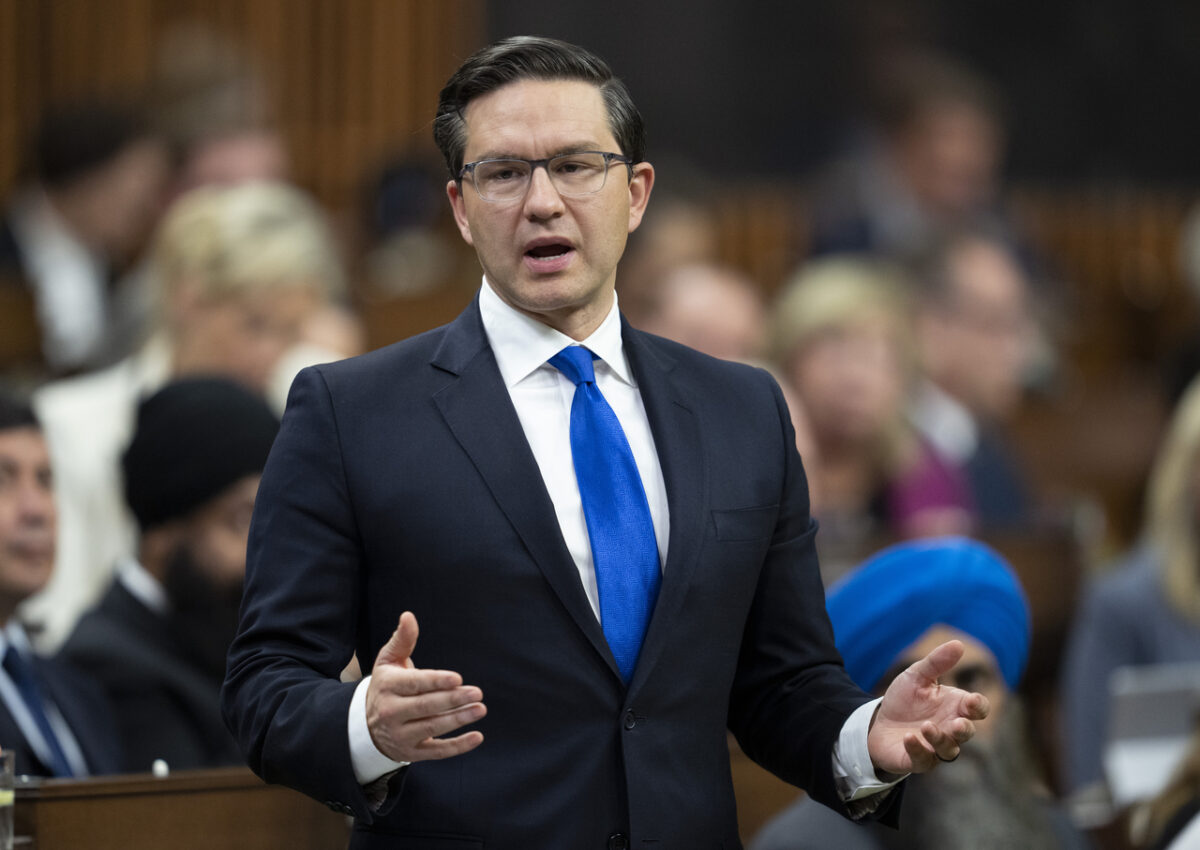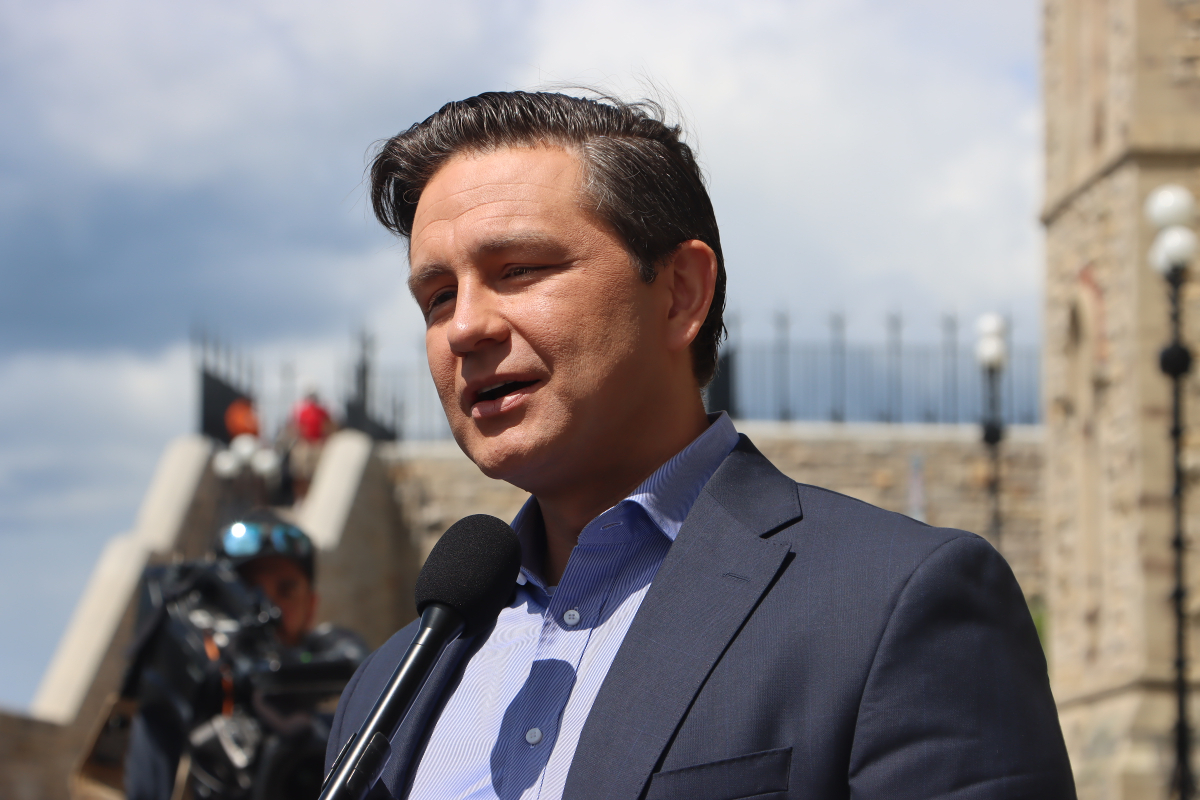Poilievre says House should be recalled as NDP vows to vote down the motion – a clash setting the stage for a significant political showdown. Pierre Poilievre’s demand for an immediate parliamentary recall throws down the gauntlet, citing pressing issues demanding immediate attention. The NDP’s counter-move, a promised vote against the recall, highlights a deep partisan divide and raises questions about the handling of crucial national matters.
So, Poilievre’s pushing for a House recall, but the NDP are ready to block it. It’s all pretty intense political maneuvering, a stark contrast to the laid-back vibe you’ll find described in this article about The quest for good times in the South Kootenay , which focuses on a much more relaxed atmosphere. Back to the political drama, though – this showdown in Parliament is shaping up to be a real nail-biter.
This situation is fueled by differing perspectives on the urgency and the best approach to resolving the underlying problems.
This political clash pits Poilievre’s urgent call for action against the NDP’s strategic opposition, creating a compelling narrative of political maneuvering and contrasting priorities. Understanding the nuances of each party’s position requires examining the specific issues at hand, the potential consequences of both actions, and the broader implications for the political landscape.
Poilievre Demands Parliament Recall; NDP Vows to Block

Pierre Poilievre’s call for an immediate recall of Parliament, met with a firm rejection from the NDP, has ignited a significant political firestorm. This situation highlights deep divisions within the Canadian political landscape regarding pressing national issues and the appropriate parliamentary response.
Poilievre’s Call for a Parliamentary Recall
Poilievre’s demand for a recall stems from his belief that several critical issues require immediate parliamentary attention. He argues that the current government’s handling of these matters is inadequate and demands immediate action. His call follows a series of recent events, including [insert specific recent events, e.g., controversial budget decisions, unfolding economic crisis, significant policy changes] that he deems necessitate urgent parliamentary debate and action.
Specifically, Poilievre cites [list specific issues, e.g., rising inflation, housing crisis, concerns about national security] as reasons for the recall. He contends that these issues demand immediate attention and cannot be effectively addressed without a formal parliamentary session. The timeline leading up to the call includes [provide a brief timeline of events leading to the recall, e.g., specific dates of relevant events, statements made by Poilievre and the government].
| Poilievre’s Stated Reasons | NDP’s Likely Counterarguments |
|---|---|
| Soaring inflation impacting Canadian families | Existing government initiatives are addressing inflation effectively; a recall is unnecessary. |
| Housing affordability crisis | Ongoing housing policy reviews and initiatives are underway; a recall would disrupt the process. |
| National security concerns | Appropriate security measures are in place; a recall is a political maneuver, not a necessary response. |
| [Add another issue and counterargument] | [Add NDP counterargument] |
NDP’s Opposition and Potential Alternatives

The NDP’s vow to vote down the recall is based on their assessment that the issues raised by Poilievre are either being adequately addressed or do not warrant an immediate recall of Parliament. They might argue that a recall would be a costly and disruptive exercise, potentially diverting resources from more pressing matters.
Voting against the recall carries potential political risks for the NDP. It could be perceived as obstructing the democratic process or being unresponsive to public concerns. However, the NDP might mitigate these risks by proposing alternative solutions, such as [list potential alternative solutions proposed by NDP, e.g., special committee meetings, expedited reports on specific issues, enhanced public consultations].
A hypothetical scenario where the NDP changes its stance and votes for the recall could significantly alter the political landscape. It might lead to a period of intense parliamentary debate and potentially result in [potential impacts, e.g., compromise on policy, concessions from the government, shift in public opinion].
Public Opinion and Media Coverage, Poilievre says House should be recalled as NDP vows to vote down
Public reaction to Poilievre’s call and the NDP’s response is varied and complex. Media coverage has been extensive, often reflecting the partisan divisions surrounding the issue. There are claims of potential biases in media portrayals, with some outlets leaning more towards supporting Poilievre’s call and others highlighting the NDP’s counterarguments.
- Headline 1: “Poilievre Demands Immediate Recall Amidst Economic Crisis”
- Headline 2: “NDP Rejects Recall, Accuses Poilievre of Political Gamesmanship”
- Headline 3: “Public Divided on Parliament Recall, Polls Show”
- Headline 4: “[Insert another headline reflecting public opinion]”
Social media has amplified public discourse, creating an echo chamber effect where pre-existing political biases are reinforced. The rapid spread of information and opinion on platforms like Twitter and Facebook could significantly influence public perception of this political dispute.
Political Ramifications
Poilievre employs a populist strategy, focusing on public discontent and portraying himself as a champion of the people. The NDP adopts a more measured approach, emphasizing the need for reasoned deliberation and highlighting the potential drawbacks of a recall.
Short-term consequences could include increased political polarization, shifts in public approval ratings for both parties, and potential changes in government policy. Long-term impacts might include changes in electoral strategies, adjustments in party platforms, and lasting impacts on public trust in political institutions.
A chart illustrating the potential political fallout could show a sliding scale representing public approval ratings for both parties, potentially showing a decrease for the NDP if they remain opposed to the recall, and an increase for Poilievre if the public supports his demand. The chart could also illustrate potential shifts in voter intention for upcoming elections.
Comparison with Past Parliamentary Recalls

Several instances exist where Parliament was recalled under similar circumstances. For example, [insert example of past recall, e.g., recall following a major natural disaster, recall due to a significant economic downturn]. These past events provide valuable insights into the potential outcomes of the current situation.
| Aspect | Past Recall (Example 1) | Past Recall (Example 2) | Current Recall Situation |
|---|---|---|---|
| Reason for Recall | [Reason for past recall] | [Reason for past recall] | [Reason for current recall] |
| Outcome | [Outcome of past recall] | [Outcome of past recall] | [Potential outcome of current recall] |
| Public Reaction | [Public reaction to past recall] | [Public reaction to past recall] | [Public reaction to current recall] |
| Political Impact | [Political impact of past recall] | [Political impact of past recall] | [Potential political impact of current recall] |
The showdown between Poilievre and the NDP over recalling Parliament underscores a significant rift in political priorities. Poilievre’s push for immediate action contrasts sharply with the NDP’s calculated opposition, leaving the public to weigh the urgency of the issues against the potential political ramifications. The outcome will likely shape the political narrative in the coming weeks and months, influencing public perception and potentially impacting upcoming elections and policy decisions.
So, Poilievre’s pushing for a House recall, but the NDP are planning to shoot it down. It’s a pretty big political showdown, and honestly, it’s making me think about other unexpected events, like the sad news I just heard – check out this article about Rey Misterio Sr death news: Lucha Libre Legend: Renowned – it’s a real bummer.
Anyway, back to the political drama, this Poilievre-NDP clash is definitely one to watch.
The debate highlights the complexities of parliamentary procedure and the inherent tension between effective governance and political strategy.
Questions Often Asked: Poilievre Says House Should Be Recalled As NDP Vows To Vote Down
What specific issues is Poilievre citing for the recall?
The Artikel doesn’t specify the exact issues, but further research into recent news reports would be needed to answer this accurately.
What are the potential long-term consequences of the NDP’s vote?
The long-term consequences are uncertain but could include shifts in public opinion, potential electoral impacts, and altered relationships between parties.
How does public opinion currently stand on this issue?
Public opinion is likely divided, with support varying depending on political affiliation and individual perspectives on the issues at hand. Polling data would provide a clearer picture.
What historical precedents exist for parliamentary recalls?
The Artikel mentions researching past recalls under similar circumstances to draw parallels. A review of historical records would provide specific examples.